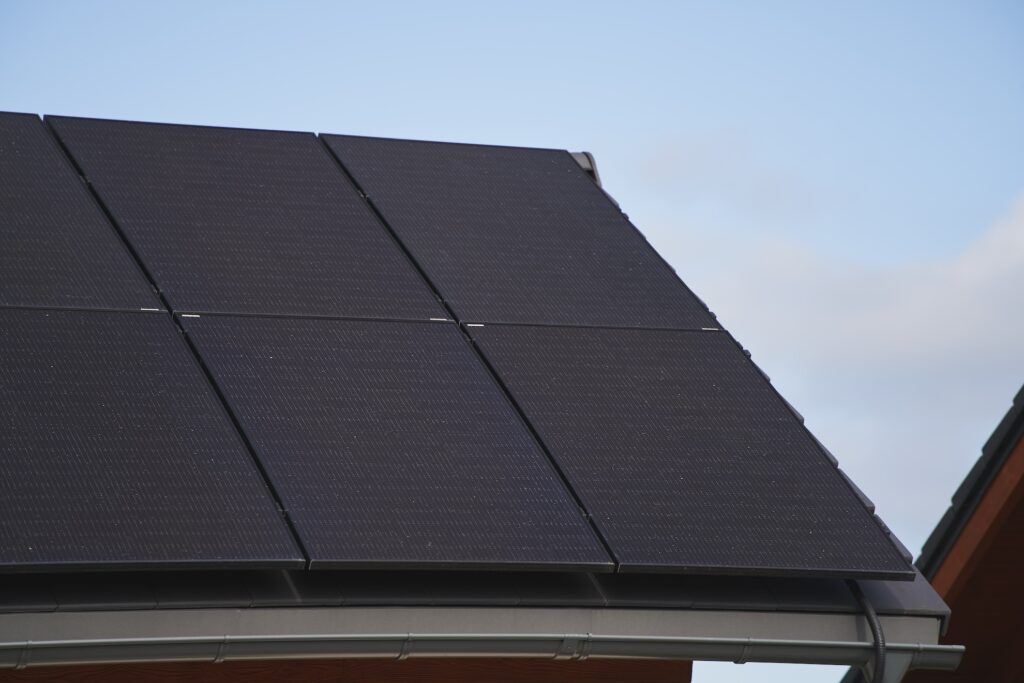
Thinking about installing solar panels for your home in Massachusetts? There are excellent rebates and incentives available that can significantly reduce your installation costs and help you save more with solar over time.
In this guide, we break down the best solar panel incentives in Massachusetts for 2025. Neeeco is the top-rated home performance contractor in Massachusetts and we are committed to saving our customers as much money as possible on home upgrades like solar panel installation.
Mass Solar Incentives at a Glance
Incentive | Estimated Savings | Description |
Federal Solar Tax Credit | 30% of total costs | Credit that reduces federal income taxes. |
Massachusetts Solar Tax Credit | 15% of total costs, up to $1,000 | Credit that reduces state income taxes. |
Sales Tax Exemption | 6.25% of total costs | Exempts solar equipment and installation from state sales tax. |
Property Tax Exemption | 100% exemption | Exempts solar energy systems from property tax assessments. |
ConnectedSolutions | $275 per kW | Pays incentives to participating battery customers. |
Mass Save HEAT Loan | Varies by customer | Batteries enrolled in ConnectedSolutions qualify for 0% interest financing up to $25,000. |
Federal Solar Tax Credit (ITC)
The federal solar tax credit, also known as the Investment Tax Credit (ITC), allows you to deduct 30% of your solar costs from your federal income taxes for the year you install your system. This credit applies to both the equipment and installation costs, significantly reducing the overall price of going solar. If your tax credit is worth more than you owe in taxes, you can carry over the remaining balance to the following tax year. The 30% credit is available through 2032, after which it will start to decrease annually until it expires in 2035.
Massachusetts Solar Tax Credit
Massachusetts provides a Residential Renewable Energy Income Tax Credit (aka the Massachusetts solar tax credit) in addition to the federal solar tax credit. Solar panel installations are eligible for a tax credit that reduces your state income tax liability by 15% of your total costs, up to $1,000.
Massachusetts Solar Sales Tax Exemption
Massachusetts provides a state sales tax exemption for home solar projects. Since sales tax is a whopping 6.25% in Massachusetts, the sales tax exemption significantly reduces the upfront costs of installing solar panels.
Massachusetts Solar Installation Property Tax Exemption
Studies show that solar panels can increase the value of your home. But does that mean they’ll increase your property taxes? Not in Massachusetts! Massachusetts offers a property tax exemption on the added home value from solar system installations for 20 years.
ConnectedSolutions for Battery Storage
ConnectedSolutions is a Massachusetts incentive for solar battery storage. Through the ConnectedSolutions program, you can earn incentives for shifting to stored solar power during peak demand periods, like hot days during the summer when everyone is cranking up their AC. You’ll receive $275 per kilowatt (kW) for your battery’s average contribution during summer events.
Mass Save HEAT Loan for Solar Batteries
Mass Save offers 0% heat loan financing up to $25,000 for solar battery installations*, as long as you enroll your battery in the ConnectedSolutions program.
Utility Rebates & Incentives for Solar Installation in MA
Many municipal electric companies offer additional rebates and incentives for solar panel installation. For example, Concord Municipal Light Plant (CMLP) offers a solar PV rebate of $625 per KW of solar capacity, up to $3,125. As a locally owned company, Neeeco is tuned into Municipal Light Plant (MLP) solar programs and will help you take full advantage of the rebates available to you.
Net Metering in Massachusetts
Can You Sell Power to the Grid in Massachusetts?
Net metering lets you save money by “selling” the excess power your solar panels generate to your electricity provider. Your system automatically sends the excess power to the grid and your electric company credits you for it. You can use your credit to offset the cost of power you buy from the grid when your panels are not producing enough—at night, for example. The great thing about net metering is that you can roll your credits over from month to month. This allows you to bank credit during the long, sunny summer months and use it in the winter when the days are shorter and your solar panels are producing less power.
Massachusetts offers one of the best net metering programs in the country! All investor-owned utility companies (Eversource, National Grid, and Unitil) are required to offer net metering. Municipal electric companies are not required to offer net metering, but many do.
Don’t Miss Out on Savings! Call Neeeco Today
Massachusetts solar rebates and incentives will help you save money on solar installation so you can reduce your electric bills and contribute to decarbonization goals. To take full advantage, you need a partner that understands all the solar incentives in Massachusetts. Neeeco is your go-to resource for Massachusetts solar and energy efficiency incentives. We can help you navigate all the Massachusetts incentives for solar power to ensure you save as much as possible on your solar panel system.
*Some restrictions apply and offers are subject to change or cancellation. Visit MassSave.com for full details.
Ready to go solar? Call (781) 309-7540 for a free estimate!
